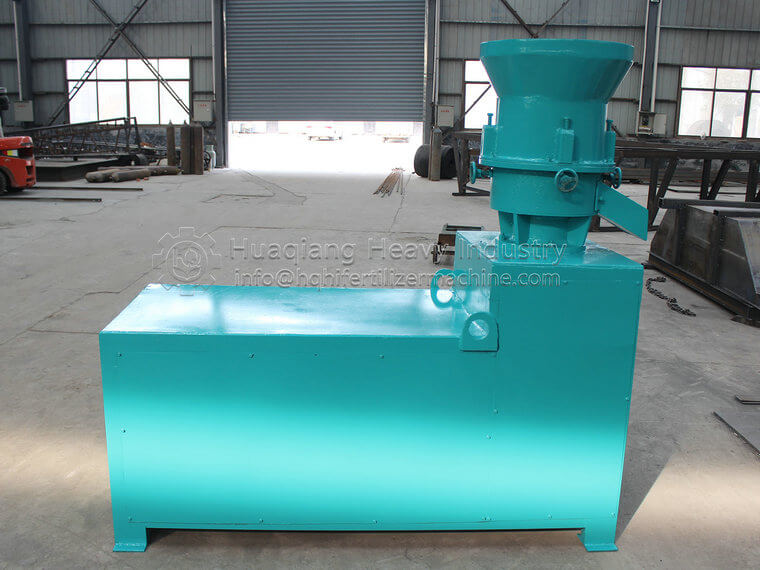The granulation process of pig manure organic fertilizer granulator is mainly divided into two types: wet granulation and dry granulation.
Wet granulation:
Wet granulation refers to adding a certain amount of water or other liquid during the granulation process to achieve a certain humidity condition for pig manure raw materials, and then extruding them into granules through mechanical force.
The advantage of wet granulation is that it can produce uniform and smooth particles, and the particles have high strength and are not easily broken.
The disadvantage is that it requires more energy to heat and dry wet particles, and the production process may generate wastewater and exhaust gas.
Dry granulation:
Dry granulation refers to the process of directly utilizing the moisture and binder of pig manure raw materials through mechanical force without adding additional water.
The advantages of dry granulation are low energy consumption, simple production process, and no generation of wastewater and exhaust gas.
The disadvantage is that the quality of the particles may not be as uniform as wet granulation, and the strength of the particles is relatively low, making them easy to break.
The working temperature of the pig manure organic fertilizer granulator usually depends on various factors, including the properties of the raw materials, the required final product characteristics, and the production process. In practical operation, the working temperature of the pig manure organic fertilizer granulator is generally between 50 ℃ and 100 ℃. Within this temperature range, organic matter in pig manure is more easily decomposed by microorganisms, which is beneficial for the activity of the binder and thus facilitates the smooth granulation process.
However, the specific working temperature still needs to be adjusted according to the actual production situation. For example, if the moisture content in the raw material is high, it may be necessary to increase the working temperature to accelerate the evaporation of moisture; On the contrary, if the moisture content in the raw material is low, it may be necessary to lower the working temperature to prevent particle hardening caused by rapid evaporation of moisture. In addition, excessively high operating temperatures may lead to excessive wear and tear of the equipment, while excessively low operating temperatures may affect the granulation effect.
Therefore, in practical operation, the working temperature of the organic fertilizer granulator should be reasonably set according to the specific properties of pig manure and production process requirements to ensure the stability of the production process and the reliability of product quality. At the same time, close attention should be paid to the operating status of the equipment, and process parameters should be adjusted in a timely manner to adapt to changes in raw materials and environmental conditions.